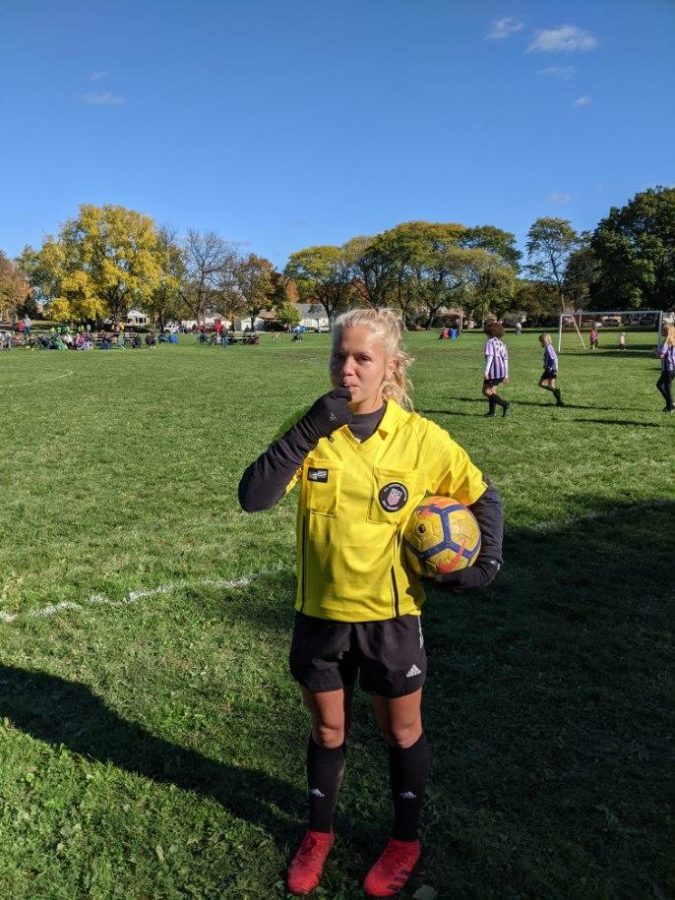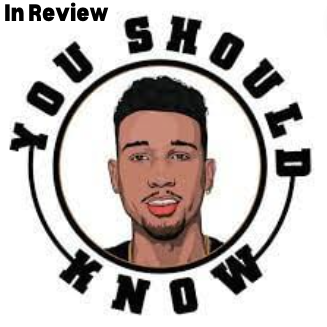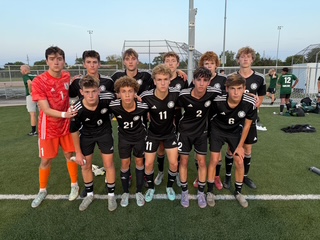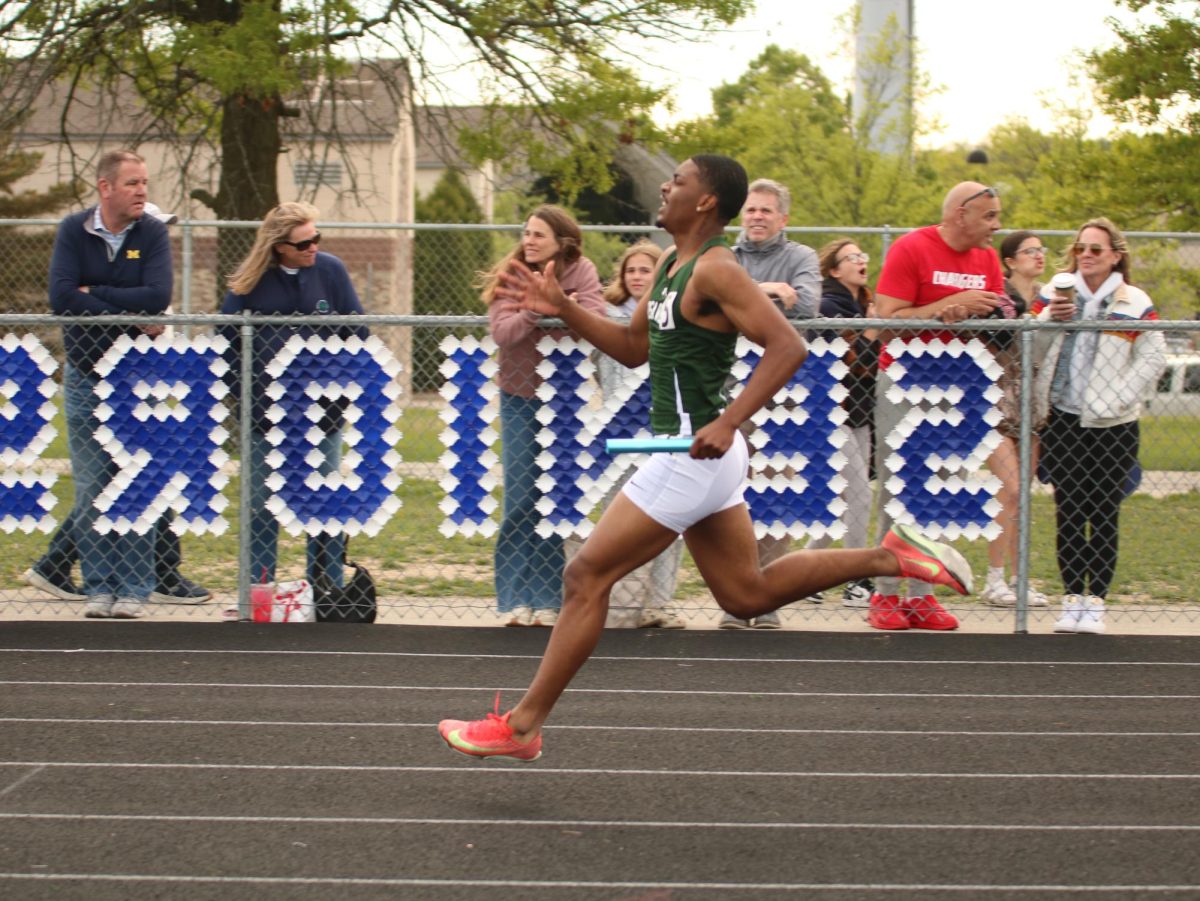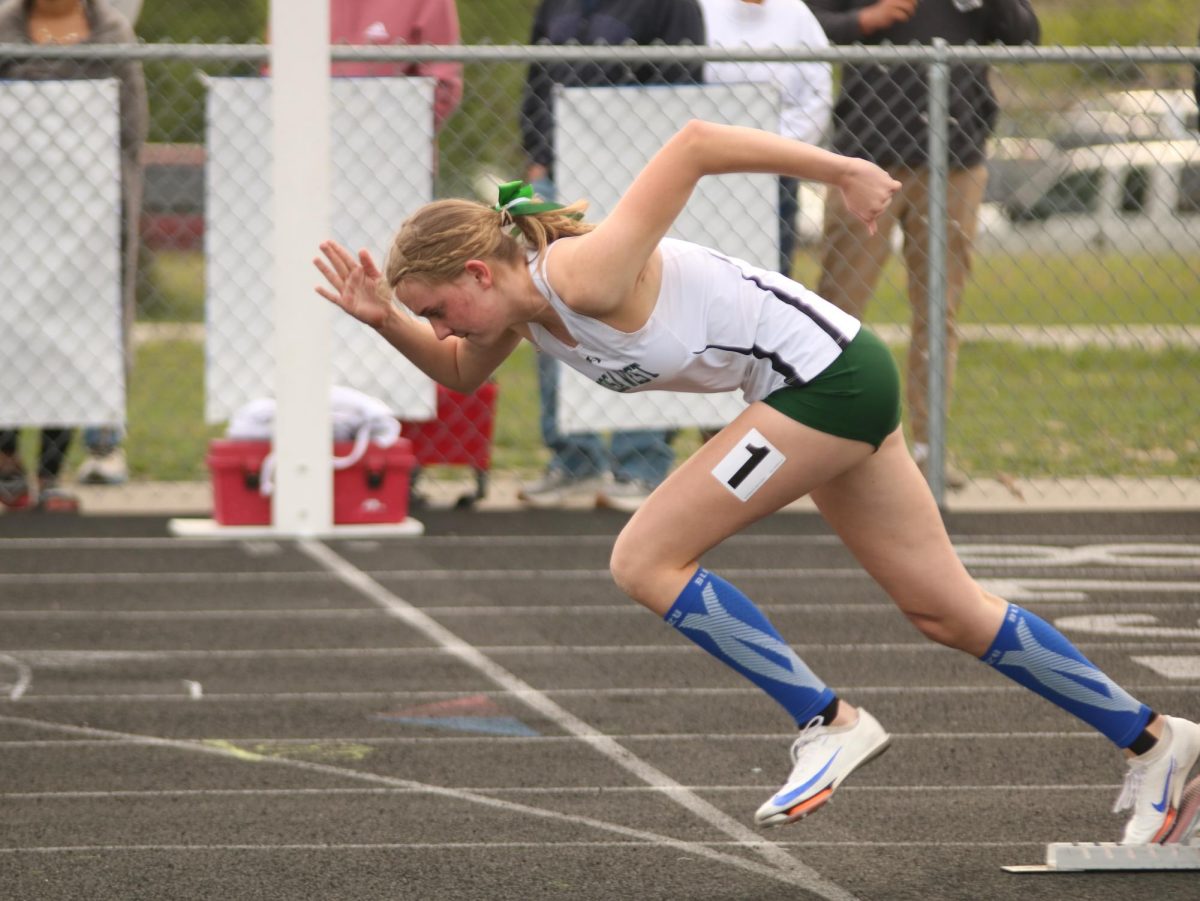Student Referees Face Harassment While on the Job
Annabelle Wooster, student referee, stands on the field while working a recreational game at Nash Park in Milwaukee.
November 18, 2021
Tosa West Junior Sarah Cape has worked as an umpire for Tosa Baseball for over 3 years. Though she’s officiated many games, there is one she won’t forget.
“After the call, there was a disagreement between two coaches and I got in the middle of it. And at one point, both coaches were yelling at each other, and one of them was yelling at me, and it was a really uncomfortable situation.” said Cape.
Cape isn’t the only umpire being yelled at by coaches, parents and players.
Teenagers and adults who officiate youth sports across the country are facing more harassment.
According to a 2017 National Association of Sports Officials (NASO) survey, nearly 50% of 17,000 responders feared for their safety while refereeing, and 57% said the harassment is continuing to get worse.
As sports officials face increased harassment, many states have begun to make harassment of sports officials illegal.
According to the National Association of Sports Officials, 22 states have passed some form of law regarding the harassment or assault of sports officials.
Wisconsin may be next.
Wisconsin AB 158 introduced in March 2021 makes harassment against a sports official a Class A misdemeanor. A public hearing was held for the bill on April 15, 2021.
This bill would punish offenders with up to a $10,000 fine and possible anger management courses and community service.
Harassment of sports officials not only makes the job difficult for individual referees, but it has caused fewer people to want to officiate.
According to the National Association of Sports Officials and the Wisconsin Interscholastic Athletic Association, the harassment of sports officials has led to a decrease in the number of officials available.
“Unsporting behavior has a serious effect on the number of people willing to work as a sports official.” said Luke Modrovsky, assistant editor of NASO’s Referee Magazine, in an email.
According to the WIAA, there were 520 fewer sports officials in 2017-18 than the year prior.
As the number of officials has decreased, local organizations are relying more on teen referees to officiate events.
However, teen referees may face more harassment as sports officials than their adult counterparts.
Teen officials feel like the age difference between coaches and parents creates a strange power dynamic that causes adults to be more confrontational with young referees.
“I feel like because I was younger, they thought they could take advantage of that. If I was an adult, maybe they would be less inclined to yell” said Cape.
Other students have had similar experiences. Tosa West class of ´21 graduate, Evan Flierl was a lifelong soccer player and a soccer referee for six years.
“I’ve talked to some other kids at West, and, when they were younger, they definitely experienced feeling helpless like they couldn’t really take control of the situation because they were being overlooked due to their age, even though they were the sports official” said Flierl.
There may be advantages to being an older referee.
“When I was younger, you definitely took a lot from the coaches, and even the spectators. It was challenging to blow your whistle with confidence and stand behind your decision. Because there’s always somebody kind of double checking what you’re doing, but I guess now that I know the game. I’m older and people give me respect as an adult. It’s easier to stand behind your decision.” said Flierl
Harassment of officials comes from coaches, parents, players or spectators.
Tosa West Senior Aidan Grove has officiated youth soccer in the Milwaukee area for the past four years.
“Usually it’s verbal, like a coach yelling at you for making the wrong call… but I´d say the parents are the worst.” said Grove.
Providing referees with strategies to manage harassment has become a focus of training.
Adult and youth officials must complete hours of training before being certified and organizations have adopted new training to address the harassment problem.
Flierl believes new training being provided to referees is a good step.
“Currently, in our new training, (we are being taught) how you can deal with those situations. As far as reffing goes we used to have a procedure called “Ask, Tell, Dismiss”. Address the coach with a yellow card or a red card which is a warning or caution. Then it turns into a dismissal, when the coach has to leave the field. “
Not only is referee training being modified to address this problem, but youth sports clubs and organizations are being proactive when it comes to addressing harassment of sports officials.
Alvaro Garcia-Velez, President of Milwaukee Kickers Soccer Club and a youth soccer coach, thinks the solution to end harassment starts with sports organizations implementing courtesy within competitiveness.
“It is essential to teach the importance of sportsmanship, which includes showing respect to the referees,” said Garcia- Velez.
Another common practice in many sports facilities, including MKSC, is a zero tolerance policy against parents coaching from the sideline.
“USF and their refereeing organization, they’re definitely taking steps in the right direction. Being able to provide youth refs with the resources to handle these situations and how they can go about it. I know we’ve had a lot more to deal with, even harassment…, and making sure players are in a safe position.” said Flierl.
NASO supports any endeavor to educate coaches on the difficulty of officiating Said Modrovsky.
Former executive director of the Wisconsin Interscholastic Athletic Association (WIAA), Dave Anderson agrees more policies need to be instituted in sports facilities.
“Sport organizers need to take a zero-tolerance view of coaches, fans, parents and others who are not able to control themselves in/around “kids games”. Better supervision, enforcement and zero-tolerance would go a long way in a positive direction,” said Anderson in an email.
It is still unclear if the issue of referee harassment will be solved through a law making it illegal, new policies or additional training, but it is certain that the job of a sports official is a very important one, that many enjoy and want to keep pursuing.
The role of a referee is to officiate, but to also have a positive engagement with players. Sports officials can help athletes improve their game and develop their character.
Flierl sees his role as a referee to be a good way to support young players.
“It’s a really neat kind of teaching, teaching players how to play the game, making sure people know their rules and just everyone having a good time. It’s definitely a job that I enjoy.”



